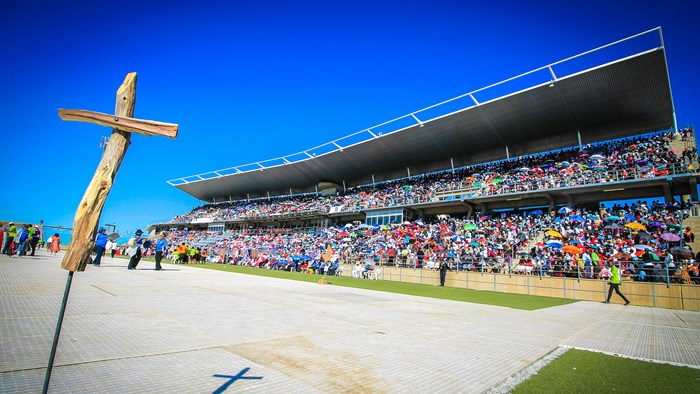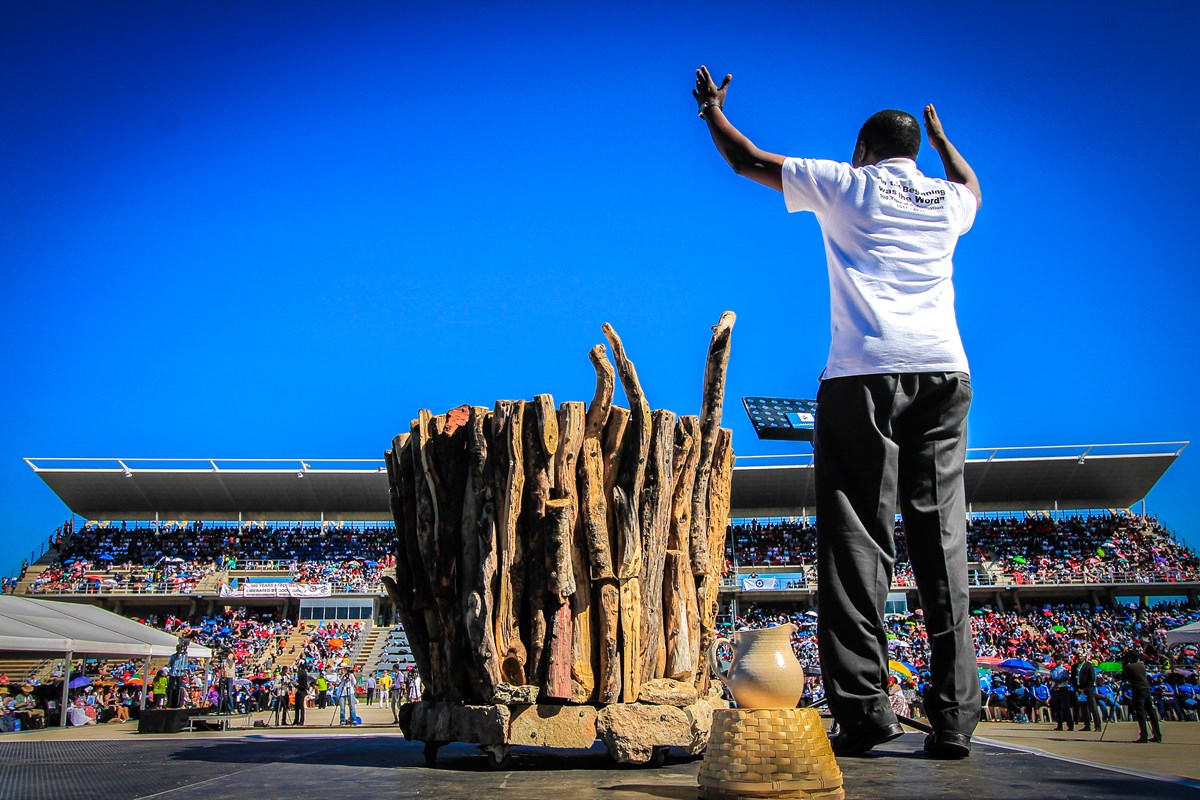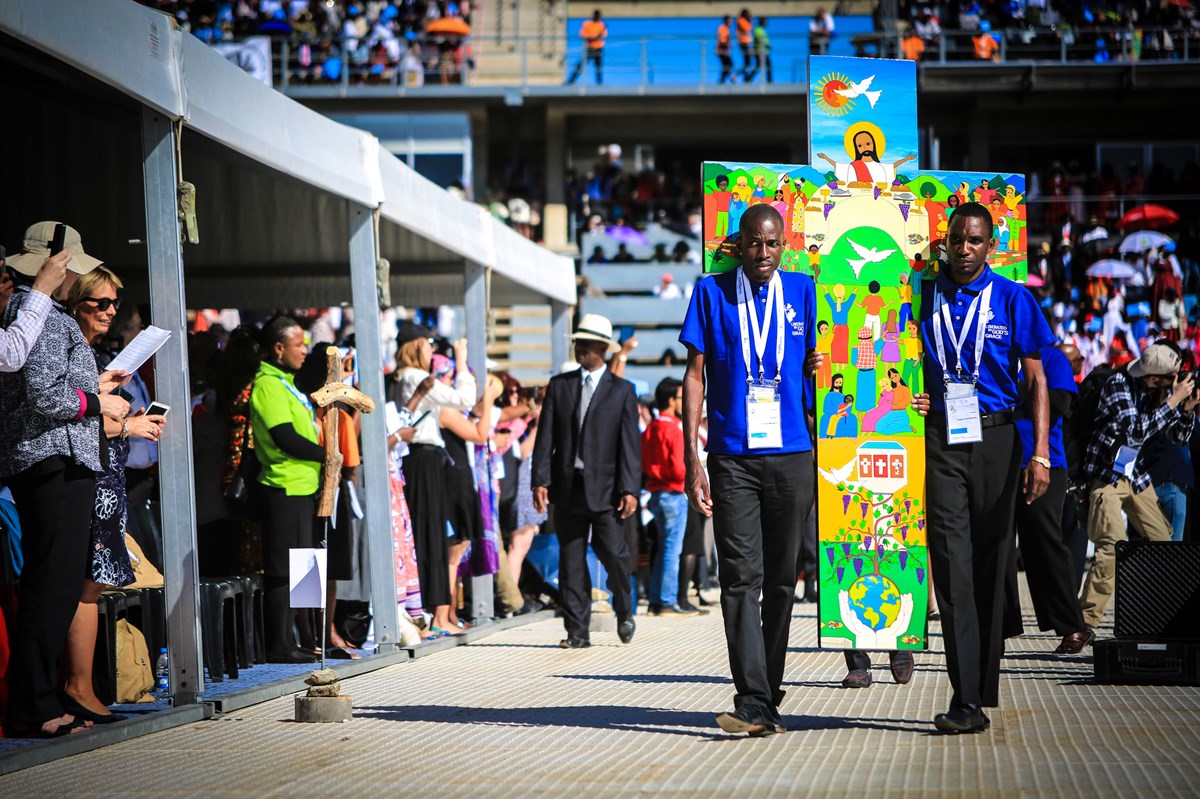
Hundreds of Lutherans gathered this week for a global commemoration of the Reformation. But they didn’t do it in Germany, where their namesake Martin Luther was born and where he hammered out his 95 theses.
Instead, the Lutheran World Federation (LWF) gathered in Namibia, a country of just 2.5 million in southern Africa.
“Assemblies of the LWF move between regions,” spokesperson Pauline Mumia told CT. Africa was up in 2017, and while “LWF is very much aware of the roots of the Reformation in Wittenberg, Germany,” the organization has also been commemorating the anniversary for three years now.
“The focus of the commemoration includes recognition of the global nature of the Reformation through the places where we meet,” Mumia said. The June 2016 LWF Council meeting was in Wittenberg, while the joint Catholic-Lutheran Commemoration in 2016 was held in Sweden.
“In the venue we express both the dynamism and the global nature of the Reformation,” she said.
In Namibia, Luther’s “rebellion against Rome was also an inspiration to us during our country’s liberation struggle against the injustices of apartheid and occupation,” Namibian president Hage Geingob, himself a Lutheran, said when welcoming the delegates.
“We are taking a leaf out of Martin Luther’s writings, as we also seek to build a new society in reconciliation. I recall Luther’s inquiry into the nature of atonement—or reconciliation—that presupposes a broken relationship. Atonement brings about the restoration of the relationship. Our policy of reconciliation draws on this experience.”
Perhaps the relationship most in need of restoration is that with Germany itself.
Germany’s historical presence in Namibia is strong—in 1884, as Europe was carving up Africa, Germany claimed Namibia and called it German South West Africa. The discovery of diamonds increased interest, and thousands of Germans swooped in, claiming both land and forced labor from indigenous Africans.
The native Herero people rebelled, killing more than 100 German civilians. The response was ruthless: German troops indiscriminately killed men, women, and children from the Herero tribe, and later the rebellious Nama tribe. They drove tens of thousands into the desert and trapped them there with no food or water, then imprisoned many more in concentration camps. More than 100,000 were killed. (Germany and Namibia are negotiating an apology and potential reparations.)
The Evangelical Church in Germany (EKD) apologized in advance of the LWF’s Twelfth Assembly meeting this week. About 145 member churches from 98 countries sent nearly 800 participants, including about 325 delegates, to set the priorities for the LWF’s work until it meets again in six years.
Lutheranism is one of the lasting influences of the 31-year German occupation of Namibia. About 90 percent of Namibians are Christian; half of them are Lutherans. The first and second largest churches in the country are the Evangelical Lutheran Church in Namibia (650,000 members) and the Evangelical Lutheran Church in the Republic of Namibia (350,000 members). Both top the next largest denomination—Catholicism, with about 300,000 members.
The two large Lutheran denominations, along with the smaller, 5,200-member Evangelical Lutheran Church in Namibia–German Evangelical Lutheran Church, hosted the LWF gathering.
“Our wish to host the Assembly is based on the long-standing relation to the LWF and should also be seen as a sign of gratitude on our side for the many benefits arriving from that relationship,” the churches said when inviting the LWF to come.
Those benefits came after South Africa seized Namibia from Germany during World War I. South Africa held on for 75 years, enforcing apartheid and oppressing the black majority, until the United Nations negotiated Namibia’s independence in 1990.
“At a time when Namibia was isolated and little known in the outside world, the LWF provided opportunities for Namibian church representatives to travel outside, build relationships, and tell their stories,” wrote Ralston Deffenbaugh, LWF assistant general secretary for international affairs and human rights, in a booklet for this week’s meetings. The LWF also cared for Namibian refugees who were fleeing to Tanzania, Zambia, Botswana, and Angola.
The LWF approved two principles against racial segregation and discrimination in 1970; five years later, they organized legal defense for eight Lutheran pastors who were arrested for supporting the liberation movement. In 1984, delegates to the LWF assembly suspended member churches in Namibia who had not ended “the division of the church on racial grounds.”
The LWF also provided scholarships for native Namibians to study abroad, since there were few opportunities for them to pursue college in their own country. Between 1967 and 2015, the LWF sponsored 86 scholarships for Namibians; another 100 were provided by American Lutheran congregations. This week, the Nambian postal service issued commemorative stamps honoring the Reformation, the conference, and the scholarships.
The theme of the assembly was “Liberated by Grace,” with “sub-themes articulating that creation, salvation, and human beings are not for sale,” the LWF announced.
“We will not give up and will never quit, because we firmly believe that hatred, violence, greed, the growing gap between rich and poor, abject poverty, injustice, exploitation, terrorism, extremism, discrimination and death, do not have the last word,” said Namibian bishop emeritus Zephania Kameeta at the Reformation commemoration ceremony in Sam Nujoma stadium, which stands in a town established for blacks during apartheid. Kameeta, who is also Namibia’s minister of poverty eradication and social welfare, was imprisoned three times for opposing apartheid.
“Dear sisters and brothers who are commemorating 500 years of the Reformation, let us go out from here with this liberating truth, our Lord Jesus Christ, to be reformed and reformers, renewed and renewing, liberated and liberating and to live lives in which people see and experience grace, love, justice, unity and peace,” he told thousands of Lutherans who joined the delegates on Sunday.
Outgoing LWF president Munib Younan told the delegation he hoped dialogue between Lutherans and Catholics would “lead to further breakthroughs of an ecumenical spring.”
He referenced the EKD’s apology for Germany’s colonial genocide, and offered the LWF’s help with the reconciliation between the two countries, Anglican Communion News Service reported.
Newly elected LWF president Musa Panti Filibus, the archbishop of the Lutheran Church of Christ in Nigeria, spoke about some of the LWF’s priorities for the next six years.
“I see the great need to pay attention to questions of religiously motivated violence in the world today,” Filibus said. Many of his congregations in northeastern Nigeria, afraid of Boko Haram attacks, have stopped church activities.
He also called for LWF attention to the global swing of church growth from the north and west to the south.
“We have an obligation to listen to one another and support each other in these struggles,” he said. “No church should be left to feel it is alone.”

Support Our Work
Subscribe to CT for less than $4.25/month






















